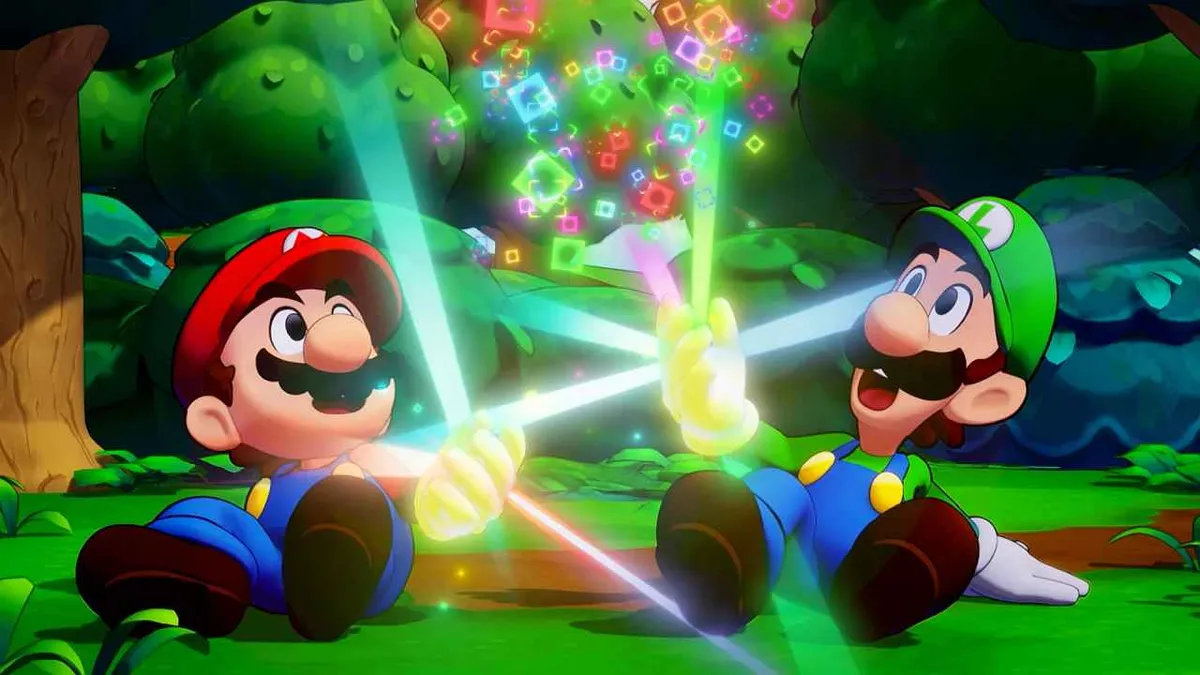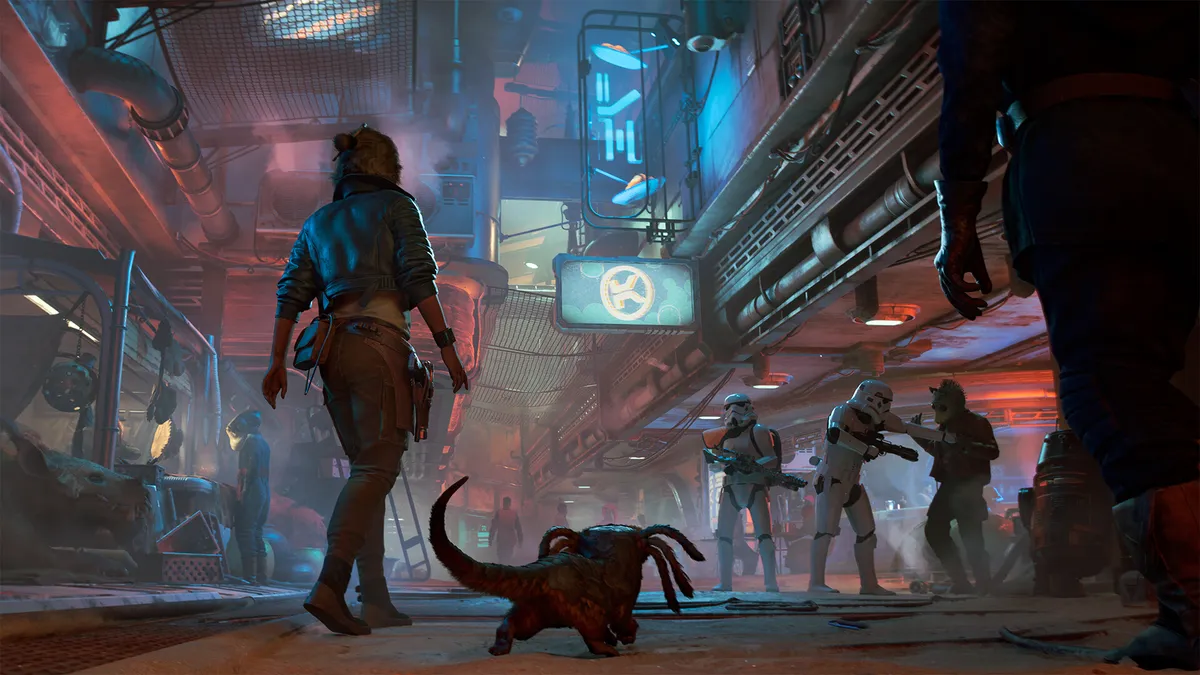Blud: The Kotaku Review: A Playable 90s Cartoon With Vampires
Dungeons Of Hinterberg Review: A Cozy, Magical Zelda-Like
Do you believe in magic? What do you think it looks and feels like? In Dungeons of Hinterberg, magic is uncomfortably real. In the places that it has sprung up, monsters inspired by local folklore have come to life, and otherworldly dungeons have appeared. Quiet mountain towns have become booming centers of industry, and every otherwise “normal” place reminds people of the magic they’re missing in their own lives.
That’s how we find Luisa, our protagonist, at the beginning of Dungeons of Hinterberg. A disillusioned junior at a law firm, Luisa packs up her bags and flees the tedium and numbness of her life for a chance at feeling something through the literal magic of the town of Hinterberg. And let me tell you, Dungeons of Hinterberg is teeming with magic. Across 20 hours of plumbing its dungeons, meeting its townsfolk, and hiking up and down the Alps’ numerous terrains, I was enchanted. It isn’t without some jank, but it’s without a doubt my feel-good game of the year so far, and a wondrous attempt at an indie Zelda-like.
The crux of Hinterberg’s charm is its simplicity. At the beginning of every day, you will often have a short conversation with another character, and then embark on a journey to one of Hinterberg’s regions to explore a dungeon. At that point, you hike through the picturesque park (rendered in stunning pop art) looking for one of the game’s 25 dungeons, and eventually enter one. Upon its completion, you return to town where you are allowed to shop for potions, gear, and upgrades, as well as talk to some of the townsfolk and other tourists and engage with a straightforward adaptation of a Social Link system. Then, you rinse and repeat.
By cutting a lot of the filler and bloat that a much bigger game might load up on, Hinterberg is allowed to shine a spotlight on its most honed edges, namely its titular dungeons. Each of the game’s 25 dungeons has some sort of gimmick, and though they begin simply enough, they eventually evolve into much grander fare. An early dungeon funnels you from encounter to encounter via minecart, but a much later one might become a multi-stage auto scroller on a river raft or a puzzle box with the mind-bending perspective of Fez or Monument Valley. Some of them are low on encounters in favor of puzzles (or vice-versa), but each is a mostly refreshing experience that riffs on an aesthetic, as well as a mechanic that fans of dungeon-heavy games might recognize.
When it really gets going, Hinterberg’s puzzling is wonderful. It is never so abstract or convoluted that you’re absolutely stumped, but it does demand focus. The solutions to puzzles are never far off, meaning you just have to think about it for more than a few seconds to piece together what’s got to be done. As someone who can be a bit of a brute, I love this school of puzzle design. Hinterberg’s puzzles are intuitive, and because many of them build off of one another to grow subtly more complex as you progress, you, too, gradually evolve, informally learning the language of its philosophy and getting to gel with it. In a lot of puzzle games, I bang my head against a wall till I triumph over it, but in Hinterberg it felt more like I was in sync with the puzzles and we had achieved a mutual sense of cohesion.
One way in which Hinterberg remains novel is by inventively playing with conventions and camera to radically change on the fly. One level might present itself as a sort of 2D platformer, another might come across as an action-RPG like Diablo complete with an isometric angle, and some of my favorite levels appear in a snow region whose various dungeons riff on the level design of Super Mario Galaxy, of all things. It even has a Lost Woods-style dungeon in the vein of Zelda, its chief influence, and while Hinterberg remains fundamentally the same through these shifts, it embraces a vivacity as it pays homage to these genres and specific games, and becomes a celebratory and triumphant pastiche of its various forebears.
Speaking of, though Hinterberg’s dungeons lean heavily into Zelda territory, its combat most notably cribs from Dark Souls, though it’s never so grueling. You have a light and heavy swing which can be woven into short and simple combos that might stagger and even topple opponents. When you’re not on the attack, though, you’ll be dodge-rolling like a motherfucker, as well as managing your stamina and MP gauge, which are tied to the use of two abilities which rotate depending on the region you’re currently in. The cherry on top are these super-effective moves called attack conduits which have cooldown timers rather than gauges, and can be swapped out at nearly any time. If this sounds pretty standard, it’s because it is, and Hinterberg doesn’t mess with this winning formula for the sake of player comfort. In a game brimming with novelty, it’s a little disappointing how cut-and-dry encounters grow to be.
As Luisa, who has come here to become an adventurer—known as a slayer—ventures out and talks to the townsfolk, it becomes apparent that magic isn’t all that the brochures and marketing machines have made it out to be. Magic came to Hinterberg and transformed the town, which is led by a mayor who seems hellbent on commodifying the experience and pimping it out to as many people as possible. Theresa, who runs the inn Luisa stays at, has never enjoyed more success thanks to the constant influx of tourists, but it comes at the price of the constant noise. Not literal noise, though a club for adventurers does exist just around the corner from the inn. Rather, the noise of gears churning beneath the surface of it all; a noise that threatens to drown out the denizens of Hinterberg who once had a say in what happens in their small town for the sake of capital.
Soon enough Luisa, who befriends various folks around town and benefits from these relationships through its social system, becomes an avatar for their collective will. As she gets to know people like the smithy Hannah, Luisa begins unraveling a conspiracy that threatens to unmake Hinterberg, whose leadership has tried to capture and sell magic. Hinterberg’s “coziness” disguises an uglier truth as it provides commentary on the things we aren’t willing to do and forsake for a dollar or an ounce of powermoney or influence.
I really appreciated the nuance with which Hinterberg tells this story, which wound up going places I didn’t expect. The game’s very conscious of even Luisa’s role as tourist, and acknowledges how her and many of the people she meets are very much part of the problem plaguing the village. Whether it be for fame, a fantasy-fulfilling vacation, or as a way to exorcize some personal demons, everybody looks to Hinterberg and its magic to solve some ill of their own, but never really give back to the town or invest in it and its people. Instead, Luisa and her ilk come to town and take. If magic were real, Hinterberg believes there’s no way we wouldn’t abuse it, and maybe we’re better off without it. Maybe what we all need to do is take stock of our lives and the lives around us and ask how we can resolve to make things communally better, rather than looking to the divine or magical to fix it all.
Despite Hinterberg telling me that I should confront my problems rather than run away from them, I’d happily run back to this game time and time again. The beauty of its rendition of the Alps is hard to overstate, and I was enamored by the mere act of jogging up and down its sumptuous trails. Its top-notch dungeon design only further complements what an absolute joy it was to sink into its world filled with magic. Like the best vacation spots, I can’t wait to be drawn in by Hinterberg’s magnetism again and revel in its luxuries for a long time to come.
.
-
 2024-09-28
2024-09-28 -
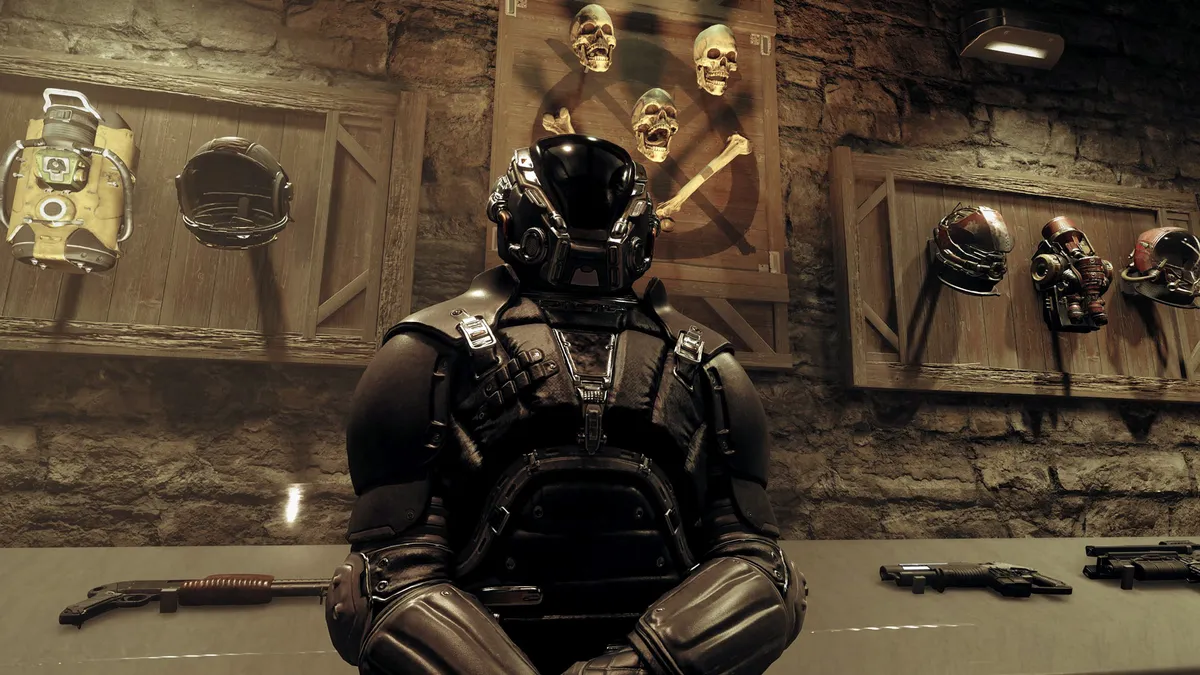
Starfield’s $7 Quest: The Kotaku Review
2024-09-28 -
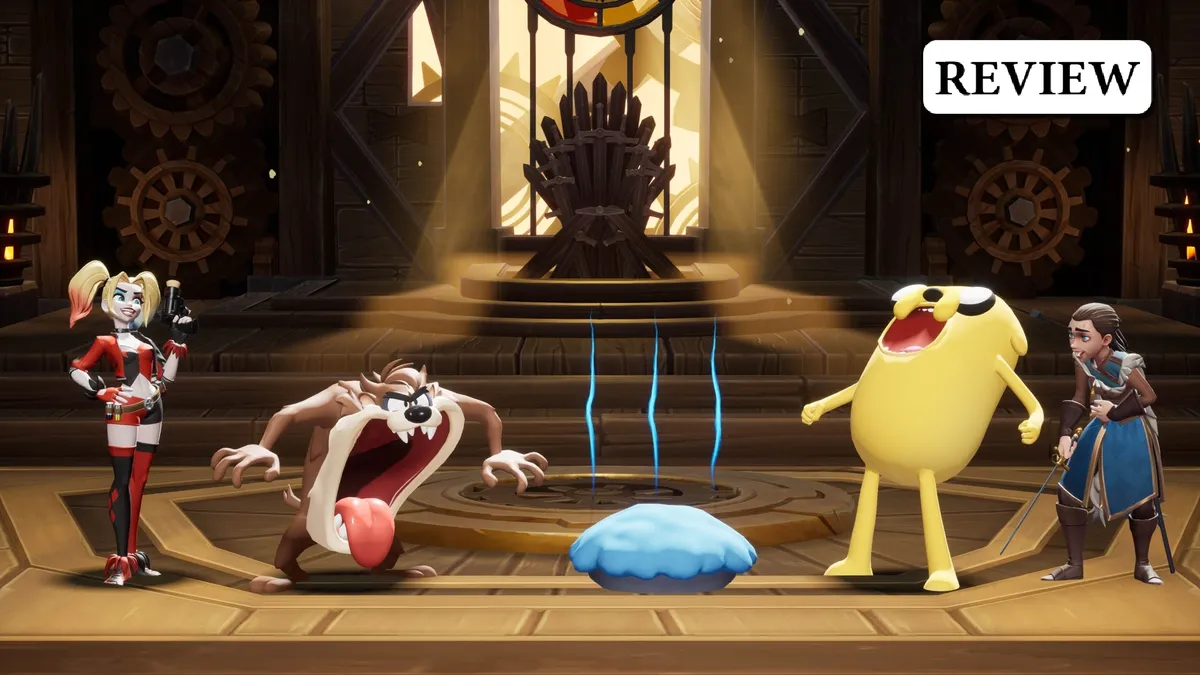
MultiVersus Review: Terrific Gameplay, Terrible Grind
2024-09-28 -

Night Springs Is The Perfect Follow-Up To Alan Wake 2
2024-09-27 -

Flintlock Siege Of Dawn Review: A Great First Soulslike
2024-09-28 -

Kunitsu-Gami: Path of the Goddess Review: Peak Action Strategy
2024-09-28 -
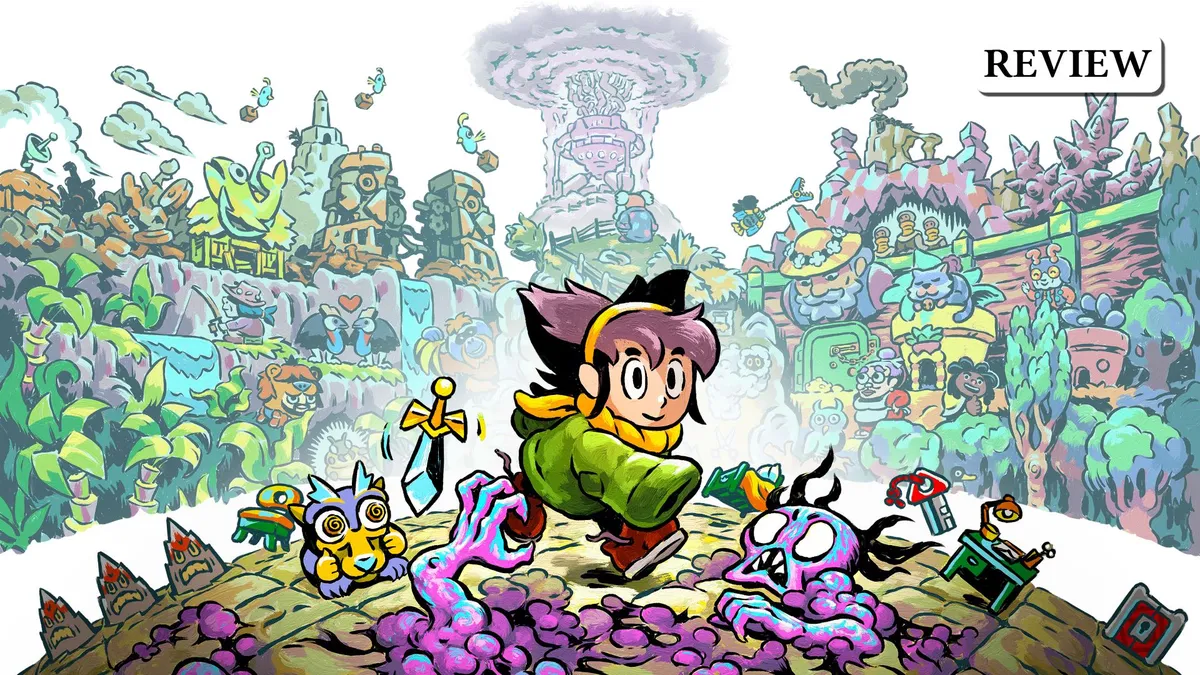
Arranger Review: A Near-Perfect Puzzle-Focused RPG
2024-09-28 -
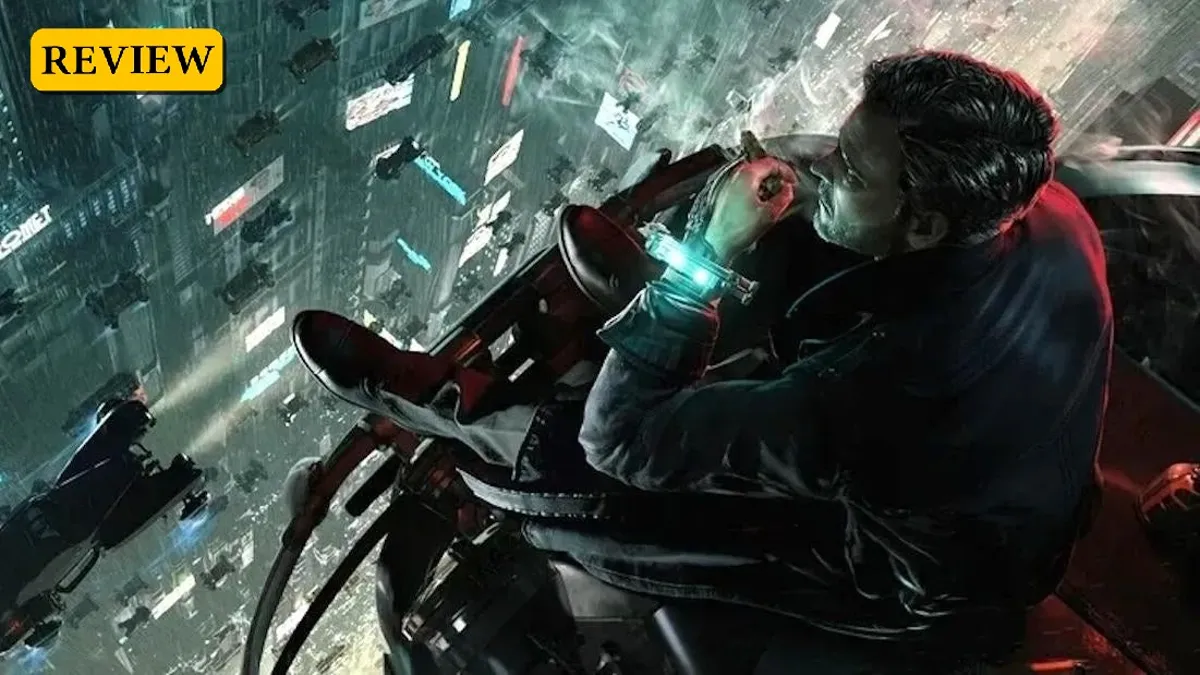
Nobody Wants To Die Is Pure Noir Perfection
2024-09-28 -

Stray Gods: Orpheus: The Kotaku Review
2024-09-28 -
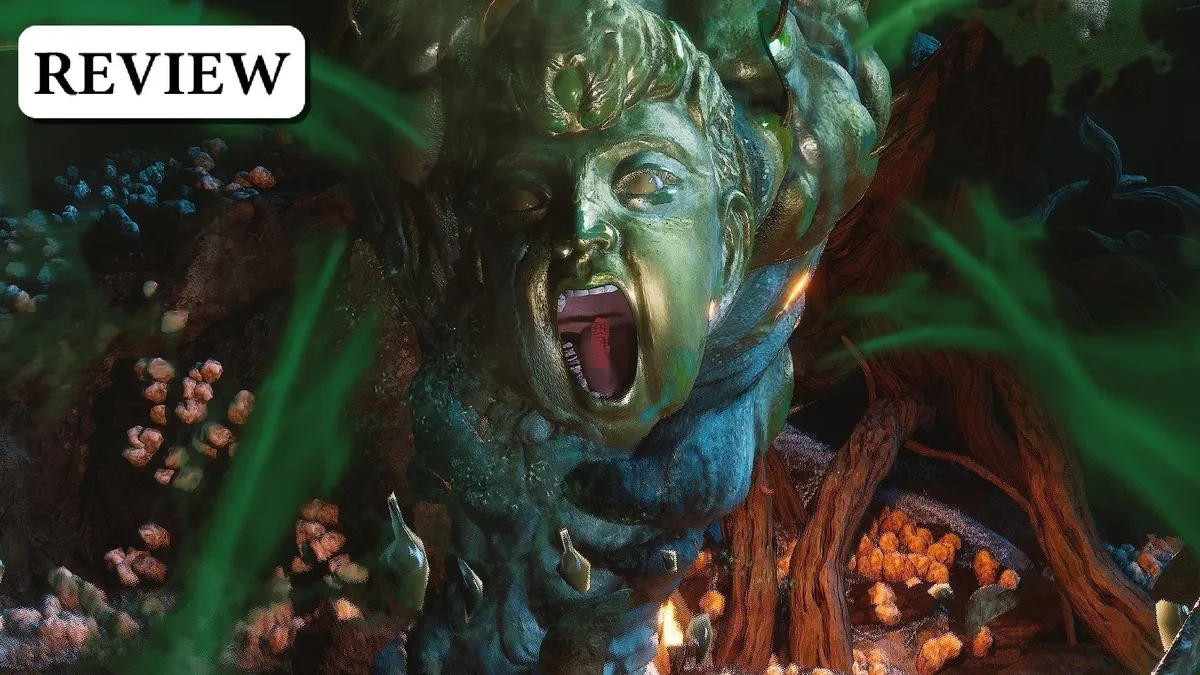
Black Myth: Wukong: The Kotaku Review
2024-09-27

 Topic
Topic How To
How To Reviews
Reviews News
News

